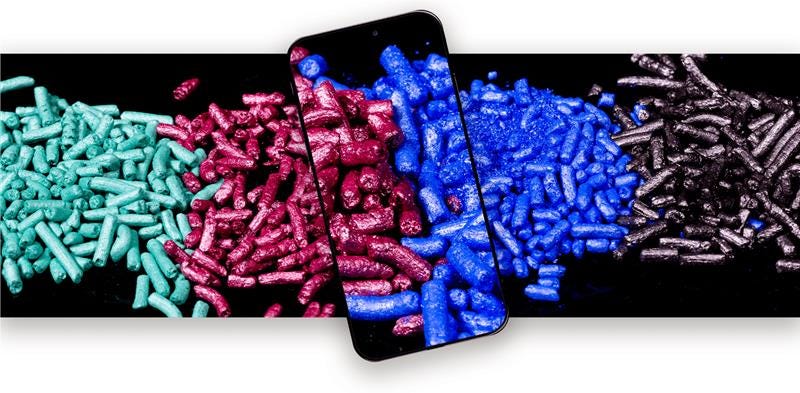Collagen Boosting Ingredients – Do They Really Work
Collagen is the most abundant protein in the skin, forming the structural framework that keeps it firm, plump, and smooth. It acts like scaffolding, providing support and strength while maintaining skin’s elasticity and hydration. This essential protein is produced by fibroblasts in the dermis and plays a crucial role in wound healing, skin regeneration, and overall resilience against environmental stressors.
Why Does Collagen Decline?
As we age, collagen production naturally slows down, and existing collagen fibers begin to degrade. This decline starts as early as the mid-20s and accelerates due to various factors:
- Intrinsic aging: The body’s natural aging process reduces fibroblast activity, leading to decreased collagen synthesis.
- UV exposure: Sun damage is one of the leading causes of collagen breakdown, triggering the production of enzymes that degrade collagen fibers.
- Pollution and oxidative stress: Free radicals from pollution and environmental toxins accelerate collagen degradation.
- Lifestyle factors: Smoking, excessive sugar consumption (glycation), and poor diet contribute to collagen loss and weakened skin structure.
The result? Wrinkles, fine lines, sagging skin, and loss of elasticity become more noticeable, making collagen preservation and stimulation a key focus in anti-aging skincare.
Collagen-Boosting Ingredients: The Future of Anti-Aging Skincare
As collagen loss becomes a primary concern in skincare, formulators are turning to innovative ingredients that can help stimulate its production, protect existing collagen, and enhance skin’s overall structure. Traditional and cutting-edge ingredients—such as Vitamin C, Centella Asiatica, Bergenin, Encapsulated Fructose, Encapsulated Retinol, Stemona Tuberosa, Coenzyme Q10, Niacinamide, and Sodium Hyaluronate—are being utilized to support collagen synthesis through different mechanisms.
From antioxidants that protect against collagen breakdown to bioactive compounds that stimulate fibroblasts, these powerful ingredients are paving the way for more effective, science-backed anti-aging formulations. In the next section, we’ll explore these key collagen boosters and how they work.
How Collagen-Boosting Ingredients Work
Collagen-boosting ingredients work in several ways to either stimulate collagen production, prevent its degradation, or enhance the skin’s ability to retain moisture and elasticity. While some ingredients directly activate fibroblasts (the cells responsible for collagen synthesis), others provide essential cofactors or protective mechanisms to maintain collagen integrity.
How Collagen Production Is Stimulated at the Cellular Level
Collagen synthesis is a multi-step process that involves fibroblast activation and enzymatic reactions. Here’s how different collagen-boosting ingredients work at the cellular level:
- Stimulating Fibroblasts – Certain ingredients, such as encapsulated retinol, Centella Asiatica, and Stemona Tuberosa, activate fibroblasts, encouraging them to produce more collagen.
- Providing Essential Cofactors – Vitamin C plays a crucial role in the enzymatic process that converts procollagen into mature collagen, ensuring its structural stability.
- Protecting Against Collagen Breakdown – Coenzyme Q10, Bergenin, and Niacinamide function as antioxidants, neutralizing free radicals that accelerate collagen degradation.
- Boosting Hydration for a Healthy Collagen Matrix – Sodium Hyaluronate and Encapsulated Fructose enhance skin moisture levels, creating an ideal environment for collagen production and retention.
By incorporating these collagen-boosting ingredients into skincare formulations, we can effectively slow down collagen loss while encouraging new collagen production, leading to firmer, more youthful-looking skin.
Top Collagen Boosting Ingredients and Their Mechanisms
Collagen-boosting ingredients work in different ways to stimulate production, prevent degradation, and enhance skin's ability to retain structure and elasticity. Below are some of the most effective and scientifically backed ingredients for supporting collagen synthesis:
Vitamin C – The Essential Collagen Cofactor
Vitamin C plays a critical role in collagen synthesis by acting as a cofactor for prolyl hydroxylase and lysyl hydroxylase, enzymes responsible for stabilizing and cross-linking collagen fibers. Additionally, its antioxidant properties protect collagen from oxidative damage caused by free radicals and UV exposure. This makes Vitamin C an essential ingredient in anti-aging formulations.
Centella Asiatica – The Wound-Healing Collagen Booster
Centella Asiatica is rich in bioactive compounds like asiaticoside and madecassoside, which enhance fibroblast proliferation and collagen production. It has long been used in wound healing and skin barrier repair, making it a valuable ingredient in anti-aging and skin-repair formulations.
Bergenin – The Collagen Protector
Bergenin is a polyphenol with antioxidant and anti-inflammatory properties that helps shield collagen from enzymatic degradation. By neutralizing oxidative stress and inhibiting collagen-destroying enzymes like matrix metalloproteinases (MMPs), Bergenin plays a vital role in preserving the skin’s natural collagen framework.
Encapsulated Fructose – The Cellular Energy Booster
Encapsulated Fructose works at a cellular level to energize fibroblasts, enhancing their ability to synthesize collagen. This ingredient helps improve skin metabolism and overall cellular function, ensuring a steady supply of collagen-building components. Encapsulation enhances its delivery and absorption into the skin.
Encapsulated Retinol – The Collagen Stimulator
Retinol is one of the most well-researched anti-aging ingredients. It works by activating fibroblasts to produce more collagen and increasing cellular turnover to reveal fresher, more youthful skin. Encapsulation improves stability and penetration, while also reducing irritation commonly associated with traditional retinol formulations.
Stemona Tuberosa – The Skin Elasticity Enhancer
Derived from the Stemona Tuberosa root, this plant-based ingredient has been traditionally used in herbal medicine. Its potential skin-rejuvenating properties support collagen maintenance and improve skin elasticity, making it a promising addition to anti-aging skincare formulations.
Coenzyme Q10 (Ubiquinone) – The Antioxidant Shield
Coenzyme Q10 is a powerful antioxidant that protects collagen fibers from oxidative stress, one of the leading causes of premature aging. By neutralizing free radicals and energizing skin cells, CoQ10 helps maintain skin firmness, reduce fine lines, and support collagen integrity.
Niacinamide (Vitamin B3) – The Barrier Strengthener
Niacinamide is known for its multi-functional skin benefits, including reducing inflammation, strengthening the skin barrier, and preventing collagen breakdown caused by environmental aggressors. It also supports fibroblast activity, ensuring a steady production of collagen over time.
Sodium Hyaluronate – The Hydration and Elasticity Booster
As a smaller, bioavailable form of hyaluronic acid, Sodium Hyaluronate penetrates the skin effectively, providing deep hydration. While it doesn’t directly stimulate collagen synthesis, it plays a crucial supporting role by maintaining skin moisture, improving elasticity, and creating an optimal environment for collagen fibers to remain intact.
Combining these ingredients in skincare formulations ensures a multi-faceted approach to collagen support—stimulating production, preventing breakdown, and maintaining hydration and skin structure.
Debunking Myths: What Collagen Boosters Can and Cannot Do
With the increasing popularity of collagen-boosting skincare, there are many misconceptions about how these ingredients work and what results they can realistically deliver. Let’s break down two of the most common myths.
Can Topical Collagen Actually Penetrate the Skin?
One of the biggest misconceptions in skincare is that applying collagen itself topically can replenish lost collagen in the skin. However, collagen molecules are too large to penetrate the epidermis and reach the deeper dermal layers where collagen synthesis occurs.
Instead, effective collagen-boosting skincare focuses on:
- Stimulating fibroblasts to produce new collagen (e.g., Encapsulated Retinol, Centella Asiatica, Niacinamide)
- Protecting existing collagen from degradation (e.g., Coenzyme Q10, Bergenin, Vitamin C)
- Creating an optimal environment for collagen synthesis by maintaining hydration and barrier function (e.g., Sodium Hyaluronate, Encapsulated Fructose)
Rather than looking for "collagen-infused" products, formulators and consumers should seek out bioavailable collagen-boosting actives that work at the cellular level.
Can Skincare Completely Reverse Collagen Loss?
While collagen-boosting skincare can slow down collagen breakdown and improve skin firmness, it cannot fully reverse the natural aging process. Once collagen production declines with age, no topical treatment can completely restore the skin’s youthful structure.
However, consistent use of scientifically backed ingredients can:
- Improve skin elasticity and reduce the appearance of fine lines and wrinkles.
- Slow the degradation of existing collagen and support skin repair.
- Enhance hydration and plumpness, making skin look healthier and more youthful.
For best results, collagen support should be approached holistically, combining:
- Topical treatments (retinoids, antioxidants, peptides)
- A nutrient-rich diet (amino acids, vitamins C & E, zinc)
- Adequate hydration (hyaluronic acid, water intake)
- Lifestyle factors (UV protection, stress management, avoiding smoking and excess sugar)
While no skincare product can stop the natural decline of collagen, a well-rounded approach can significantly slow the process, leading to firmer, healthier-looking skin over time.
What’s the Best Way to Use Collagen-Boosting Ingredients?
- Use a multi-functional ingredient strategy: Combine retinoids, peptides, antioxidants, and hydrators to create a well-rounded formulation that supports collagen from multiple angles.
- Consider ingredient stability and delivery systems: Encapsulation of actives like retinol and fructose ensures better penetration and reduced irritation.
- Pair collagen boosters with complementary actives: Ingredients like Vitamin C enhance retinoid effectiveness, while Sodium Hyaluronate improves the skin’s extracellular matrix for better collagen retention.
- Formulate for long-term efficacy: Look beyond immediate plumping effects and develop formulations that provide sustained collagen support over time.
For cosmetic formulators, the future of collagen-boosting skincare lies in targeted bioactives, innovative delivery systems, and synergistic ingredient combinations. By focusing on ingredients that directly impact fibroblast activity, protect collagen from degradation, and maintain optimal hydration, formulators can create powerful, results-driven anti-aging products that stand out in the competitive beauty market.



